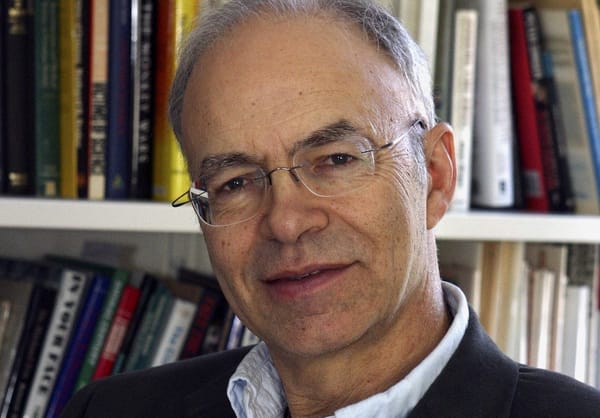On failing to design my life
I wasn’t raised to be a planner. There were no big events, like vacations or trips, to break up the weekly patterns. I saw friends daily in school or three times a week in religious meetings. There were a religious assemblies a couple of times a year in another town, but most of that planning was done for us. Family would come into town occasionally to see my grandparents, but that didn’t require planning either: we just walked a block over to my grandparents’ to see whichever cousins were there.
My parents weren’t planners, probably for similar reasons, but they also couldn’t afford to be planners. Planning when you’re poor means being disappointed twice: once when you can’t make the plans you really want to make, and again when even those plans don’t work out. I mostly didn’t feel poor growing up, in part because it was a small, rural town where even the wealthy weren’t wealthy, so my expectations about daily life were set low, and my fantasies about unreal futures could roam wild.
As an undergrad, I read when I had time, stayed up late to study when I needed to, finished too many papers right at the deadline, and did well enough with limited planning that my planning skills only modestly improved. As I’ve done larger projects, especially when those rely on other people, I’ve learned to plan enough to see why people enjoy planning and enjoy seeing plans come together, but I’ve also had too many years now to appreciate the joys of not planning.
With not planning, I worry about things once: when they happen (or maybe a few minutes before). Once something is happening, it’s too late to worry, and I have to make the best of it. I now have decades of improvisation to draw on—that skill actually started early, when I would go door-to-door talking to strangers, but that’s a story for another time. Even when I do plan, I don’t worry about what happens if I haven’t planned for everything: what happens if I don’t plan is mostly fine.
Brainstorming, which I do a lot, feels more like fantasizing than actual planning. And, while I might fantasize about how my life could be, I definitely don’t do anything like planning out my life. In fact, when I read Designing Your Life, it led me to fantasize a life for myself where I was the kind of person who designed my own life, but it didn’t lead to any designing. I continue to fail to design my life, despite assurances that I should.
I can rationalize my lack of designing my own life, maybe even of big planning more generally, as not such a bad thing. It has its benefits.
I know all med school essays start with “I’ve wanted to be a doctor since I was 5,” but, while I don’t know what my son wanted to be when he was 5, his life goal now is probably to be an NBA player. He practices a lot, and I’m sure the fantasy of playing in the NBA is fun, but whether he gets there or not misses the point: a 10-year-old shouldn’t make decisions for a 20-year-old, even if that 20-year old is their older self. If anything, I resent my 20-year-old self for not thinking more creatively about what my life could be like in the future. I mean, staying in school more or less forever? Thinking about the same topics for literally decades? Didn’t show a lot of imagination, did it?
I assume that holds true for any age: I’m sure what I now want for my 60-year-old self won’t be what that person will want. At best, I can try to make my future self want it, or even restrict his options so that he’ll feel resigned to it and then he’ll rationalize that it was for the best. I give up on television series well before the end, even for shows I like, so why think I should make plans for me at 60?
Planing does make me feel like I have some control over the future, and the feeling is accurate: I will have more control if I plan. That plan can help make hard decisions. The question is what the alternative to planning is. And I think there is a good alternative. I can get by on a few general goals and an openness to exploring my options and looking for what’s most appealing in the situations that arise. To the extent that planning shapes my life, does it shape it for the better, or just shape it in a way that I can look back on with thoughts of narrative unity? “This is how things were meant to go” might feel reassuring, but it’s false.
I’m probably conflating planning and commitment. I can be committed to something without seeing how it fits into any life design plan. As an undergrad, I struggled in my French classes. The learning all felt arbitrary: they call bread “pain”—so what? But I didn’t like that I had a set of classes that were so much harder, so I decided that I would study abroad in Paris for a year, which sounded like fun, which gave me a reason to learn French, which made the classes feel less arbitrary, which then made the classes less of a struggle. It was a commitment, but it happened more or less on a whim and for the wrong reason—a good reason to move to Paris for a year is certainly not to make French 102 easier—and it fit with no larger plans in my life. I wasn’t interested (yet!) in anything French, and if I’d been more of a planner, I don’t think my 19-year-old plans1 could have included a year-long detour to Paris to learn a language I had no intention to speak later in life. Thanks to not designing my life, though, I lived in Paris, discovered a kind of world I had no idea about, met amazing people from around the world, discovered more interesting things about myself by seeing myself in contrast to others, exchanged English lessons for homemade Chinese food, learned about espresso and wine and entirely new ways of interacting socially, read all of Milan Kundera’s books on the recommendation of a former crush and lots of Marx while nurturing a new crush on an Italian communist. My tastebuds changed, my attitudes changed, my view of what my life had been up to that point changed and of what it would be in the future widened immensely. None of that would have happened if I’d designed my life.
Not designing my life has some down sides, I’m sure. But I don’t know for sure what they are, given that I can commit to things, sometimes for a good reasons but sometimes for bad reasons, or on a whim. I’m not suggesting that it’s good to be Oblomov, but I’m not sure my life would have been better if it had been planned so far; and, even if it had been better, I’m not sure the cost would have been worth it. But this might be an elaborate rationalization, since I doubt I could have designed a life even if I’d wanted to.
which probably would have been to go to law school and make lots of money, without a clear idea of what I would spend that money on ↩


